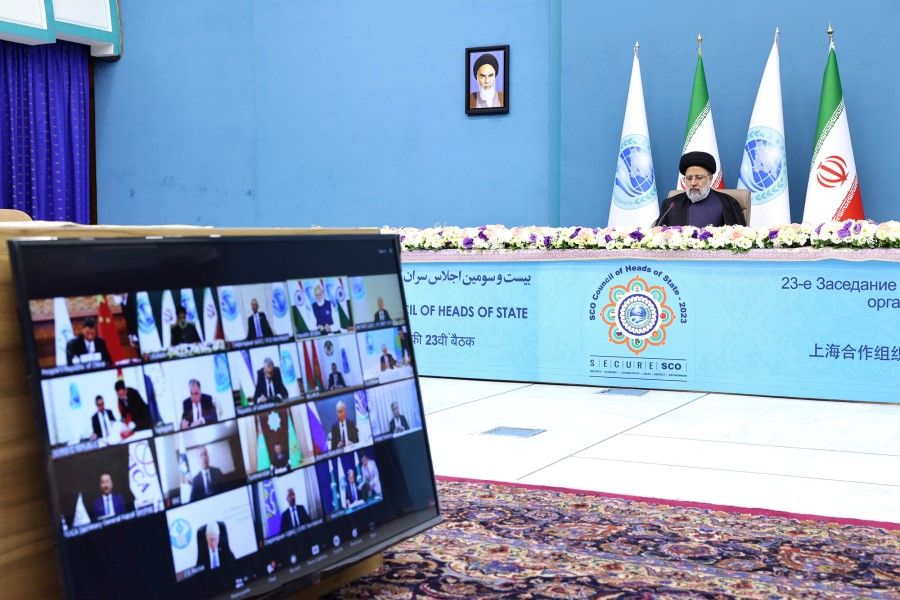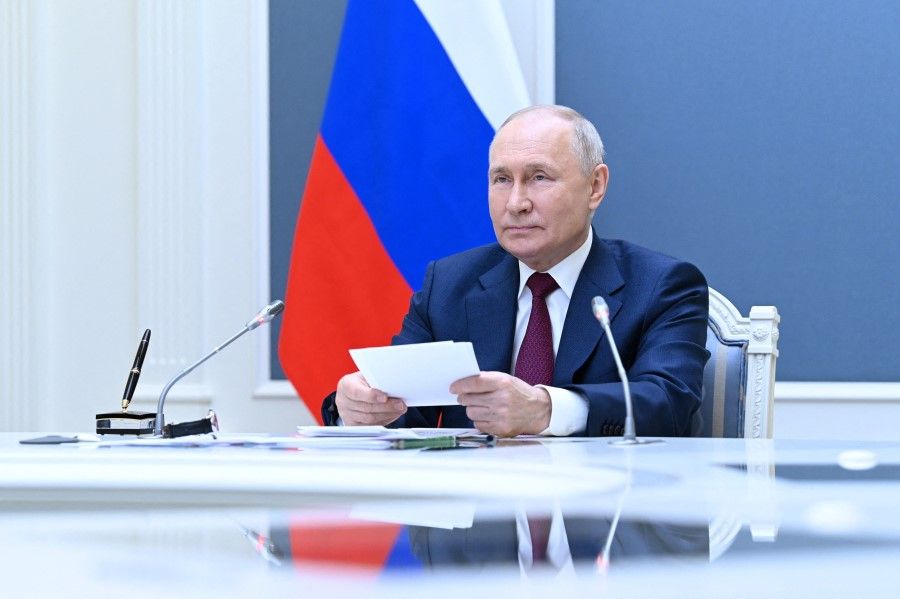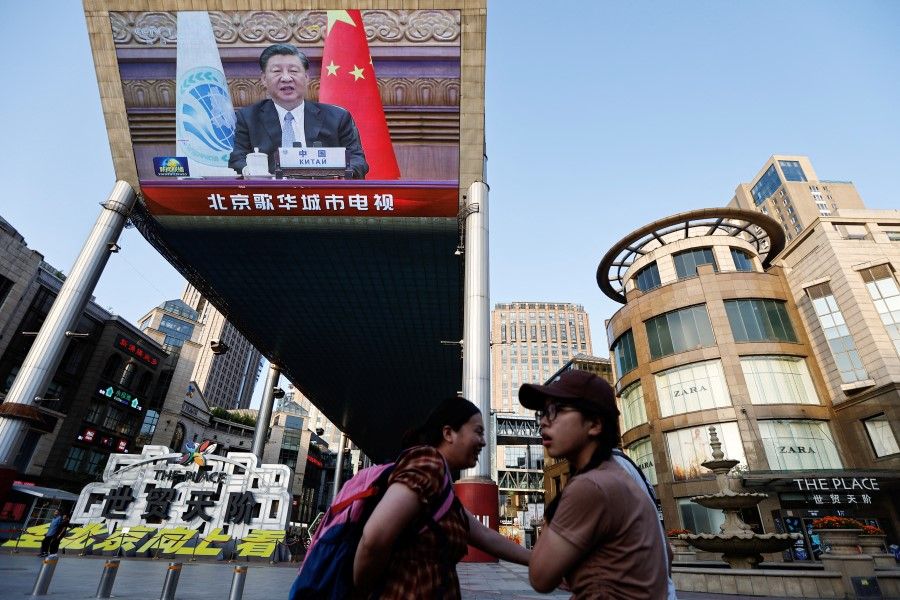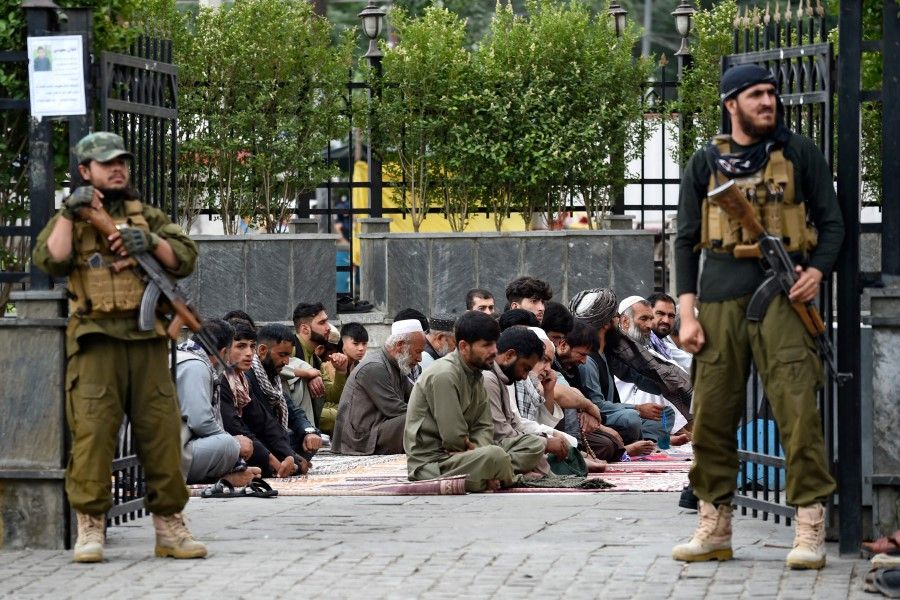SCO: This year's virtual summit may not have solved real concerns

The virtual Shanghai Cooperation Organisation (SCO) meeting hosted by India on 4 July shed light on forthcoming trends within the organisation: an enlargement of its membership to attract countries disillusioned with the West, and a growing complexity in addressing shared interests and pressing challenges.
The SCO was born in 2001 as an aggregation point for China, Russia and the former Central Asian Soviet states of Kazakhstan, Kyrgyzstan, Tajikistan and Uzbekistan. The 2017 SCO's membership expansion included Pakistan and India, and Iran was added in 2023 with Belarus probably following suit in the coming year. The organisation has now become a prominent platform to counter Western influence from Eurasia to the Middle East.
The virtual summit stands in sharp contrast to the previous SCO leaders' in-person meeting in September 2022 in the Uzbek city of Samarkand. That meeting held at the historical landmark of the ancient Silk Road showcased the long-awaited meeting between Chinese President Xi Jinping and Russian President Vladimir Putin. It also included a two-day discussion on common Central Asian concerns from Astana anxieties over the Russian invasion of Ukraine to the uncertainties stemming from the Islamic Emirate of Afghanistan.
Now, as India holds the revolving presidency of the SCO, Delhi is trying hard to play a strategic game across multiple tiers.

India shows its potential
Despite the unusual circumstances of being chaired online, the virtual gathering allowed Indian Prime Minister Narendra Modi to engage with not only China and Russia but also extend official congratulations to Iranian President Ebrahim Raisi on Iran's full membership in the SCO, all while keeping Washington's attention at bay.
A mere two weeks before, Joe Biden had showered Modi with a grand reception in Washington to count on India as a bastion against Russia and China. Now, as India holds the revolving presidency of the SCO, Delhi is trying hard to play a strategic game across multiple tiers.
Despite concerns raised by analysts regarding the online format being a dilution of the SCO's traditional approach, the one-day virtual event provided an opportunity for Modi to demonstrate India's increasing ambition on the global stage. Simultaneously, Putin used his speech to instil confidence in Russia's handling of the 36-hour armed mutiny by the Wagner Group. Additionally, Kazakh President Kassym Tokayev seized the moment to advocate for enhanced energy cooperation within the SCO.
...the ongoing war in Ukraine has not resulted in Moscow losing control over Central Asia.
China and Russia continue to dominate in Central Asia
President Xi's speech during the virtual summit echoed the familiar Chinese rhetoric, emphasising the need to ''persist in the correct direction of economic globalisation, oppose protectionism, unilateral sanctions and extension of national security concepts''. However, beneath the surface, Beijing's investments and diplomatic charm offensive in Central Asia are quietly progressing. In contrast to Delhi, Beijing continues to pour a steady stream of investments into Central Asia through the Belt and Road Initiative (BRI), even as its signature foreign policy strategy loses momentum in other regions.
Also, contrary to predictions, the ongoing war in Ukraine has not resulted in Moscow losing control over Central Asia. On the contrary, financial inflows from Russia into the region have increased and more Russian companies and diplomats are venturing into Central Asia.

While Modi mentioned that India sees the SCO as "an extended family and not just an external neighbourhood", and that "security, economic development, connectivity, unity, respect for sovereignty and territorial integrity, and environmental protection are the pillars of our vision for SCO", the journey towards attaining these shared objectives remains unquestionably demanding.
These specific concerns were mostly lost in the summit amid global political rhetoric.
Mired in politics, missing the real issues
Mere dissatisfaction with the West is an insufficient adhesive to solidify membership within the organisation. India's perception of the Chinese threat, Moscow's gradual alignment with Beijing, and the role of Pakistan within the SCO all contribute to rising concerns regarding Delhi's participation. Simultaneously, Iran's membership serves as a wake-up call for other Middle Eastern nations, such as Saudi Arabia and the UAE, who currently hold dialogue partner status within the organisation.
Established in 2001 as an extension of the Shanghai Five, the SCO's primary objectives were centred around specific and well-defined issues like border disputes and transboundary water management. However, the recent resurgence of the Taliban and their return to power in Afghanistan has reignited the risk of water disputes within the region.

The situation reached a tipping point in May, when the Taliban's actions, including their upgrades to the Kamal Khan and Kajaki dams on Afghanistan's Helmand River, resulted in severe water scarcity in Iran and triggered a violent clash along the border. Furthermore, the Taliban's construction of the Qosh Tepa Canal, spanning a length of 235 kilometres, to harness the waters of the Amu Darya River is brewing concerns among neighbouring Turkmenistan, Tajikistan and Uzbekistan. These specific concerns were mostly lost in the summit amid global political rhetoric.
The annual virtual summit hosted by India, served well as a stage for political messaging, while it seems clear that confronting the urgent realities on the ground demands old-fashioned face-to-face meetings that would iron out concrete issues.
